IRF Summit Special Event: Digitizing Religious Repression on a Global Scale
How Pakistan is Exporting its Blasphemy Laws to the U.S. and Beyond
More than a thousand people from seventy-one different convening organizations and thirty-one faith communities attended the International Religious Freedom (IRF) Summit from July 13-15, 2021 at Washington DC.
The IRF Summit brought together a broad coalition that passionately supports religious freedom around the world. The gathering focused on gaining political support for the global religious freedom movement; and empowering religious groups, civil society, and governments to take a stand for religious freedom.
In addition to plenary sessions, the summit featured special events and highlighted a wide range of important IRF issues. On July 15, 2021, The Ahmadiyya Muslim Community hosted an IRF Summit special event titled “Digitizing Religious Repression on a Global Scale: How Pakistan is Exporting its Blasphemy Laws to the U.S. and Beyond.” The event was well attended by approximately a hundred people.
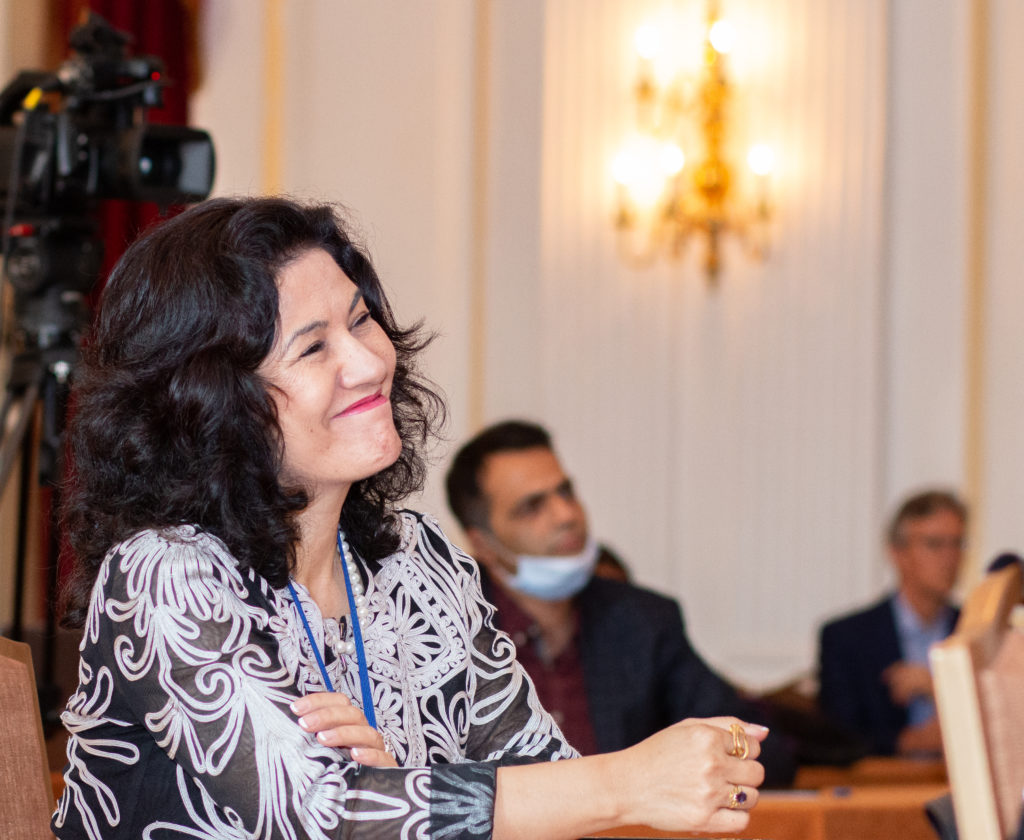
Amjad Khan, the National Director of Public Affairs of the Ahmadiyya Muslim Community USA, introduced the topic by highlighting that Pakistan has a legal structure of discrimination, which has been exacerbated through recent revisions to the Prevention of Electronic Crimes Act (2016) that permit Pakistan’s equivalent of the Federal Communications Commission, the Pakistan telecommunication authority (PTA), to implicate the country’s notorious blasphemy laws against foreign persons and entities located outside Pakistan.
Global Repression
In the wake of these revisions, Mr. Khan explained, the PTA specifically initiated legal actions against websites affiliated with the Ahmadiyya Muslim Community, despite the fact that these sites were neither based in, nor targeted toward, Pakistan. Notably, the PTA targeted several US-based websites and Ahmadi Muslims who are American citizens and reside in the United States, including Mr. Khan himself.
Mr. Khan further explained that these actions were alarming as the territorial jurisdiction and extraterritorial reach of the PTA purports to extend beyond the borders of Pakistan to any country in the world, allowing for the PTA to press charges and impose fines based on any website content considered to be blasphemous.
Beyond content created by the Ahmadiyya Muslim Community, this would also include content promoting Christianity or any other religious rhetoric the PTA would determine is blasphemous.
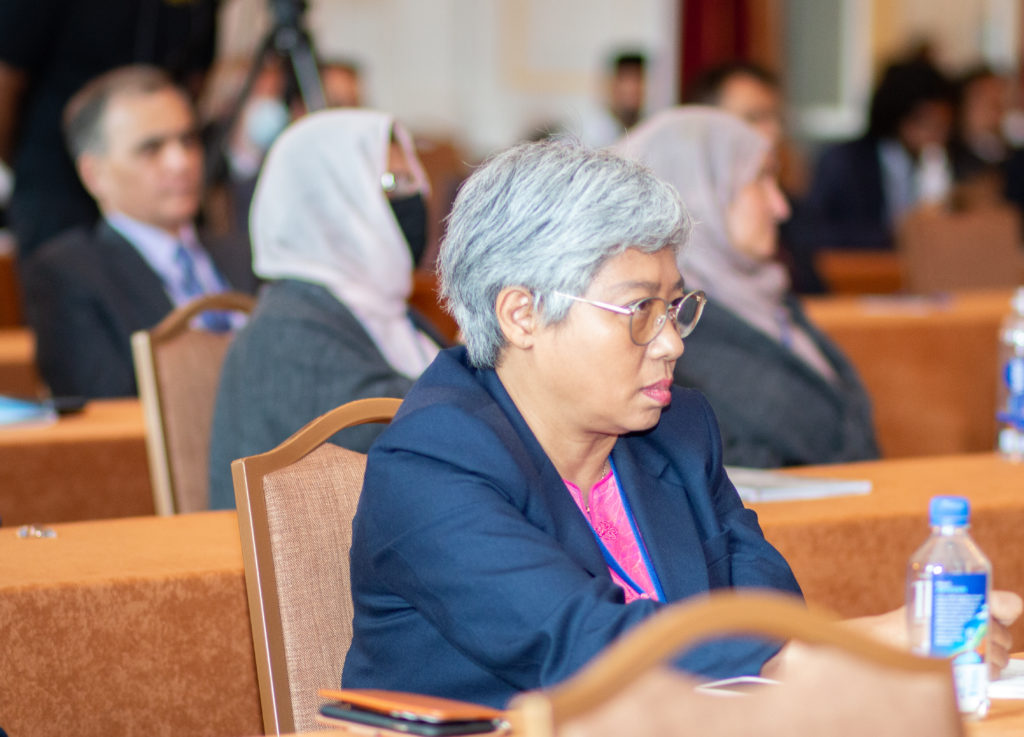

Given these concerns, the Ahmadiyya Muslim Community has retained the services of attorney-at-law Brett Williamson, intellectual property partner at O’Melveny and Myers. Mr Williamson made a few remarks on their dealings with PTA.
He stated that PECA itself requires that the accused affect person, property, information system or data located in Pakistan. The theory that PTA has jurisdiction on a website located in the United States with no content addressing Pakistan appears absurd but this is not the position that PTA has taken.
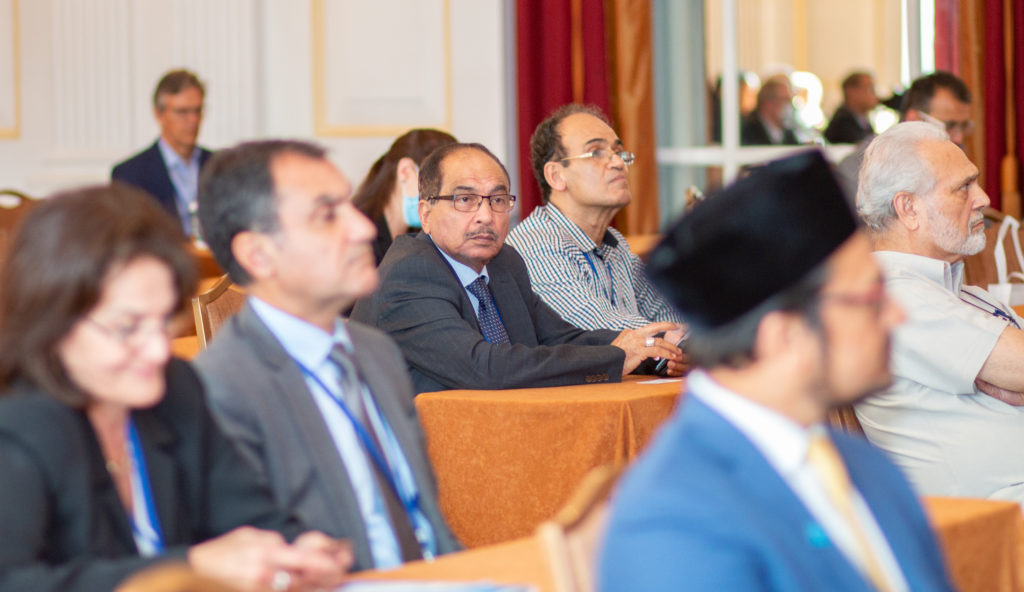

There is also another significant issue related to due process concerns: PECA itself requires some underlying violation of Pakistan law to meet the definition of its authority which it has failed to outline. It has also not provided any specifics on what the alleged prohibited conduct is making it impossible for accused administrators to know what is restricted.
The argument Brett Williamson made is that it can only be assumed that this is an attempt to enforce Pakistan’s anti-blasphemy laws and to restrict the Ahmadiyya Muslim Community’s right to express its message.
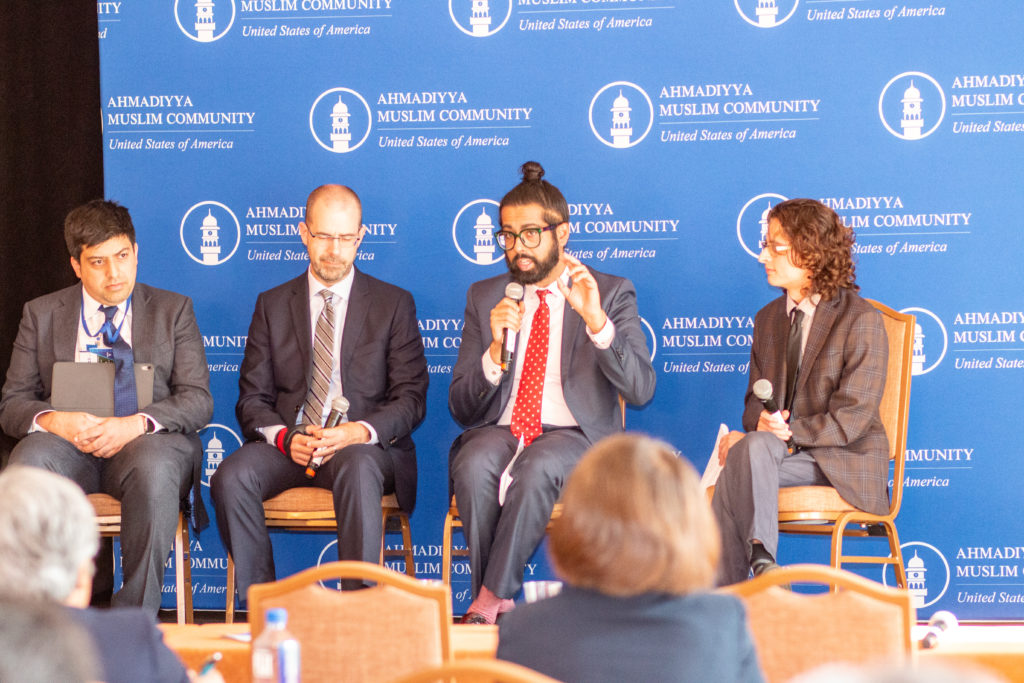

This is a direct violation of Pakistan’s purported commitment to international conventions including the Covenant on civil and political rights. He also mentioned the dangers of imprisonment or worse to accused individuals should they travel to Pakistan. Mr. Williams stated that the fight continues and that they will keep making the right arguments and advocate beyond the justice system until there is some return to sanity in this enforcement regime.
Protection Against Discrimination
Next, Nadine Maenza, the Chair for the U.S. Commission on International Religious Freedom (USCIRF), addressed the special event. She briefly highlighted USCIRF’s recommendations concerning the protection of Ahmadis as well as other religious groups against the discrimination perpetrated by the Pakistani government.
After her remarks, Sir Dr. Iftikhar Ayaz, Chairman of the International Human Rights Committee, spoke of the need for the international community to take action to stop governments from persecuting religious groups with impunity.
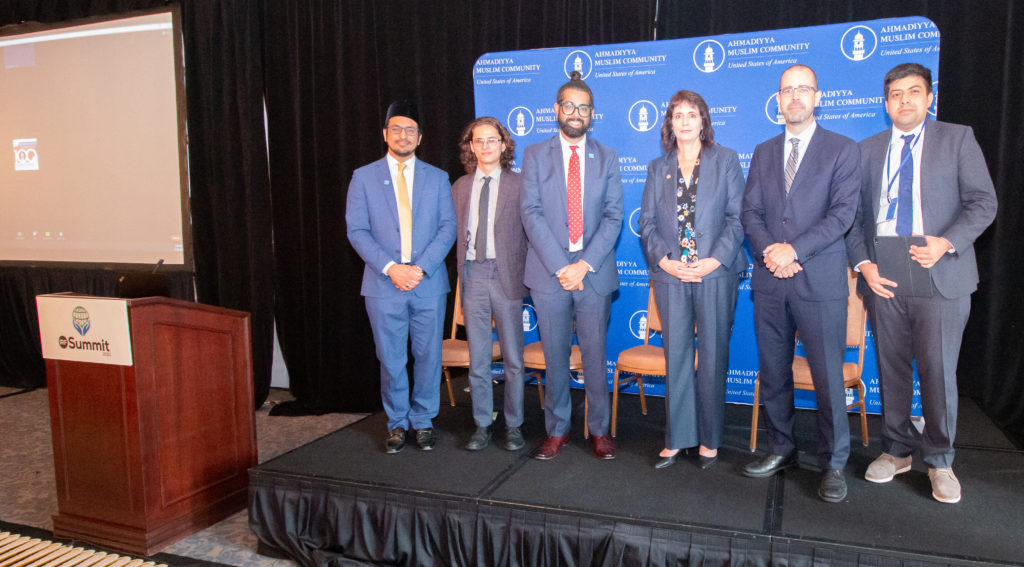

The event then opened into a panel discussion with several experts including Knox Thames, a Visiting Expert from the US Institute for Peace; Kian Vesteinsson, a Research Analyst at Freedom House; and Waris Hussain, an Adjunct Professor at Howard Law School. This panel discussion was led by Mahmood Ahmad, Vice president of the Ahmadiyya Muslim Lawyers’ association.
The panelists explained that Pakistan is a growing and potentially lucrative market for large companies in the technology sector, and that to appease the government of Pakistan, technology companies are complying with many of the government’s demands, including discrimination based on blasphemy laws.
Although the companies may not agree with the extremist religious rhetoric, by maintaining a compliant working relationship they may be able to take advantage of the growing opportunities in Pakistan. Through these actions, companies are arguably responsible for contributing to the repression of religious freedom and it is important for the religious freedom community to drive accountability in this regard. The event then concluded with a few closing remarks from Mr. Khan emphasizing the importance of the digital landscape and its effects on religious freedom.

